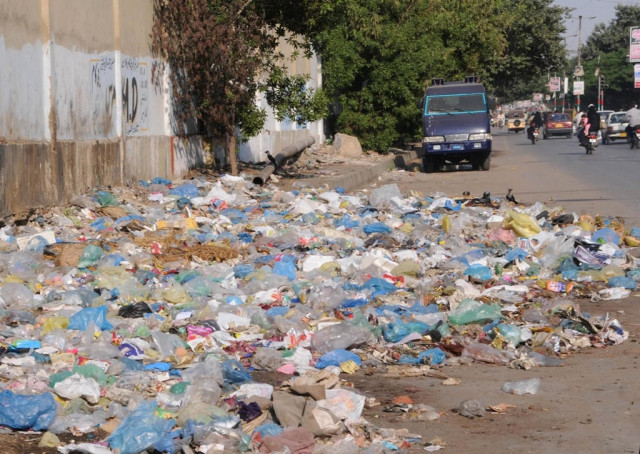2,000 tonnes of daily solid waste harming twin cities
Sewage treatment plants termed only solution

The mammoth volume of solid waste generated daily in the twin cities is causing environmental degradation and the authorities are doing nothing about the matter.
The dumping of more than 2,000 tonnes of waste daily in open landfill sites has polluted the atmosphere of Rawalpindi while environmental experts have declared installation of a waste disposal plan (WDP) inevitable. The solid waste pollutes the environment when the wind blows or it is set on fire while its residual pollutes underground water.
Meanwhile, the plan to install a sewage treatment plant from sewer extracted from Nullah Leh has been excluded from the Leh Expressway project.
Similarly, more than 2,000 tonnes of waste is lifted from various areas of Rawalpindi but there is no Waste Disposal Plant (WDP) in the city. The different civic agencies of Rawalpindi and Islamabad transport the solid waste to the open dumping sites outside the city.
Rawalpindi Waste Management Company (RWMC) and Turkish company Albayrak pick up 850 tonnes of solid waste from across the city and dump it on the open landfill site near Losar on GT Road.
Read ‘Cleanliness campaign to make Rawalpindi waste-free’
Rawalpindi Cantonment Board (RCB) transports about 370 tonnes while Chaklala Cantonment Board (CCB) dumps 285 tonnes of solid waste daily in the open landfill site in the Chuhan area of Chakri Road.
Since there is no proper dumping site in Islamabad, more than 600 tonnes of solid waste is thrown in open sites in Sector I-12 and along IJP Road.
In this regard, Environmental Protection Agency (EPA), Deputy Director Muhammad Rafique told The Express Tribune that a landfill site and WDP must be set up for the management of solid waste in accordance with international standards. He added that proper treatment of solid waste would also mitigate environmental pollution.
He further said that the World Health Organization (WHO) has termed the open sewage channel of Nullah Leh in Rawalpindi a major cause of pollution. He added that the installation of a WDP has become inevitable for Rawalpindi. The project to transfer open sewerage from Leh Expressway to Gorakhpur through trenches and set up a sewage treatment plant has been scrapped.
It was planned the sewage of Nullah Leh would be taken through a large trench to a 5,500 kanal plot in Gorakhpur where a sewage treatment plant would be set up. Water and fertiliszer were also to be provided for irrigation through this plant.
This open site started spreading diseases among nearby residents. The process was stopped 10 years ago after citizens protested against it vehemently and persistently.
The environmental experts have termed the installation of a WDP for treating solid waste of more than 2,000 tonnes as inevitable.
The Rawalpindi Waste Management Company (RWMC) has acquired 1,250 kanals of land in Sahang on Mandira Chakwal Road for the new landfill site. However, there is no plan to set up a waste treatment plant there as well.
Published in The Express Tribune, July 1st, 2021.


















COMMENTS
Comments are moderated and generally will be posted if they are on-topic and not abusive.
For more information, please see our Comments FAQ